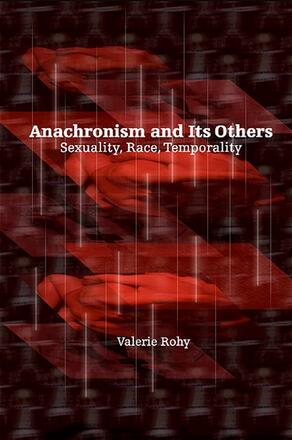
Anachronism and Its Others
Sexuality, Race, Temporality
Traces the origins of contemporary analogies between queerness and blackness.
Description
Slogans such as "gay is the new black," the use of evolutionary rhetoric against gay marriage, and nationalist efforts within the United States to promote the white family all gesture toward an analogical relationship between race and sexuality in contemporary culture. Anachronism and Its Others traces contemporary analogies between homosexuality and blackness to their nineteenth-century origins—particularly the notions of "primitivism" associated with people of color as promoted by scientific racism, and the characterization of homosexuality as "arrested development," according to sexologists. Valerie Rohy explores the linked tropes of backwardness and regression associated with race and sexuality in U. S. culture and included in literary works by Edgar Allen Poe, Frederick Douglass, Pauline Hopkins, Willa Cather, and Ernest Hemingway, as well as interdisciplinary cultural contexts such as the history of science, psychoanalytic theory, popular journalism, and political rhetoric. Linking together two major directions in current queer scholarship—the relationship between race and sexuality and queer temporality—Rohy offers a critical genealogy that illuminates the ways in which race and sexuality are connected by concepts of time and untimeliness.
Valerie Rohy is Associate Professor of English at the University of Vermont. She is the author of Impossible Women: Lesbian Figures and American Literature and the coeditor (with Elizabeth Ammons) of American Local Color Writing, 1880–1920.
Reviews
"…an arresting and deeply illuminating study … Rohy's work represents a sign of life—a confirmation that queer theory still has much to teach us, and about subjects much broader than queer subjectivity. " — College Literature